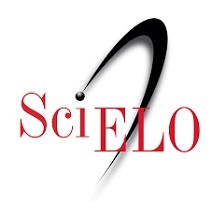
اثرات مکمل روی بر خستگی و کیفیت زندگی بیمارن مبتلا به سرطان کولورکتال
چکیده
اهداف: بررسی اثرات مکمل خوراکی روی بر شدت خستگی و کیفیت زندگی بیماران در طی شیمی درمانی کولورکتال. روشها: یک مطالعه کنترل شده دو سو کور تصادفی آینده نگر با پلاسبو(گول دارو) بر روی 24 بیمار تحت شیمی درمانی برای آدنوکاریسنومای کولورکتا ل در یک بیمارستان دولتی مراقبت عالی صورت گرفت. بیماران حاضر در مطالعه کپسول های 35 میلی گرمی(گروه روی ، n=10) روی یا پلاسبو(گروه پلاسبو، n=14 ) را دو بار در روز(70 میلی گرم روزانه) برای مدت 16 هفته از زمان دوره بلافاصله بعد از عمل جراحی تا چهارمین دوره شیمی درمانی دریافت کردند. تقریبا 45 روز بعد از جراحی برداشتن تومور ، کلیه بیماران یک رژِم شیمی درمانی دریافت کردند. قبل از هر چهار سیکل شیمی درمانی، ارزیابی عملکردی مقیاس خستگی درمانی بیماری مزمن تکمیل گردید. ما از یک مدل ترکیبی خطی برای تجزیه و تحلیل آماری داده های طولی استفاده کردیم. نتایج: نمرات پرسشنامه های کیفیت زندگی و خستگی بین گروهها در طی دوره های شیمی درمانی مشابه بود. گروه پلاسبو یک کیفیت زندگی بدتر شده و خستگی افزایش یافته را بین دوره های اول و چهارم شیمی درمانی بروز دادند، اما هیچ تغییراتی در نمرات کیفیت زندگی در گروه روی (زینک) ایجاد نشد.
نتیجه گیری: مکمل روی از خستگی پیشگیری می کند و کیفیت زندگی بیماران مبتلا به سرطان تحت شیمی درمانی را حفظ می کند.
ABSTRACT
Objective: To investigate the effects of oral zinc supplementation on fatigue intensity and quality of life of patients during chemotherapy for colorectal cancer. Methods: A prospective, randomized, doubleblinded, placebo-controlled study was conducted with 24 patients on chemotherapy for colorectal adenocarcinoma in a tertiary care public hospital. The study patients received zinc capsules 35mg (Zinc Group, n=10) or placebo (Placebo Group, n=14) orally, twice daily (70mg/day), for 16 weeks, from the immediate postoperative period to the fourth chemotherapy cycle. Approximately 45 days after surgical resection of the tumor, all patients received a chemotherapeutic regimen. Before each of the four cycles of chemotherapy, the Functional Assessment of Chronic Illness Therapy-Fatigue scale was completed. We used a linear mixed model for longitudinal data for statistical analysis. Results: The scores of quality of life and fatigue questionnaires were similar between the groups during the chemotherapy cycles. The Placebo Group presented worsening of quality of life and increased fatigue between the first and fourth cycles of chemotherapy, but there were no changes in the scores of quality of life or fatigue in the Zinc Group. Conclusion: Zinc supplementation prevented fatigue and maintained quality of life of patients with colorectal cancer on chemotherapy
چکیده
مقدمه
روش ها
نتایج
بحث
سپاسگزاری
ABSTRACT
INTRODUCTION
OBJECTIVE
METHODS
RESULTS
DISCUSSION
- ترجمه فارسی مقاله با فرمت ورد (word) با قابلیت ویرایش، بدون آرم سایت ای ترجمه
- ترجمه فارسی مقاله با فرمت pdf، بدون آرم سایت ای ترجمه
